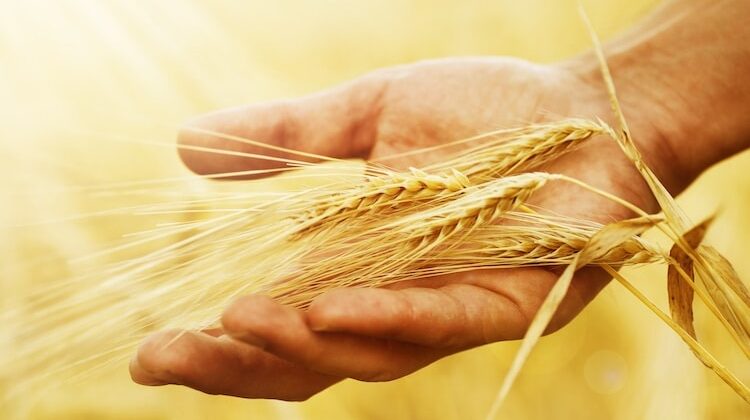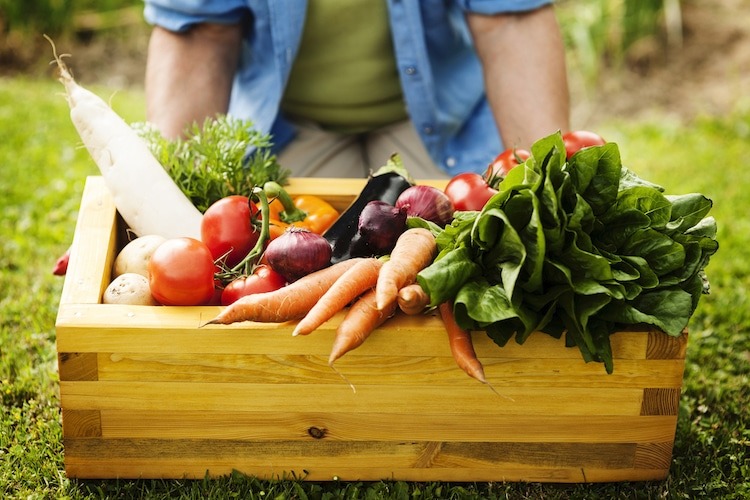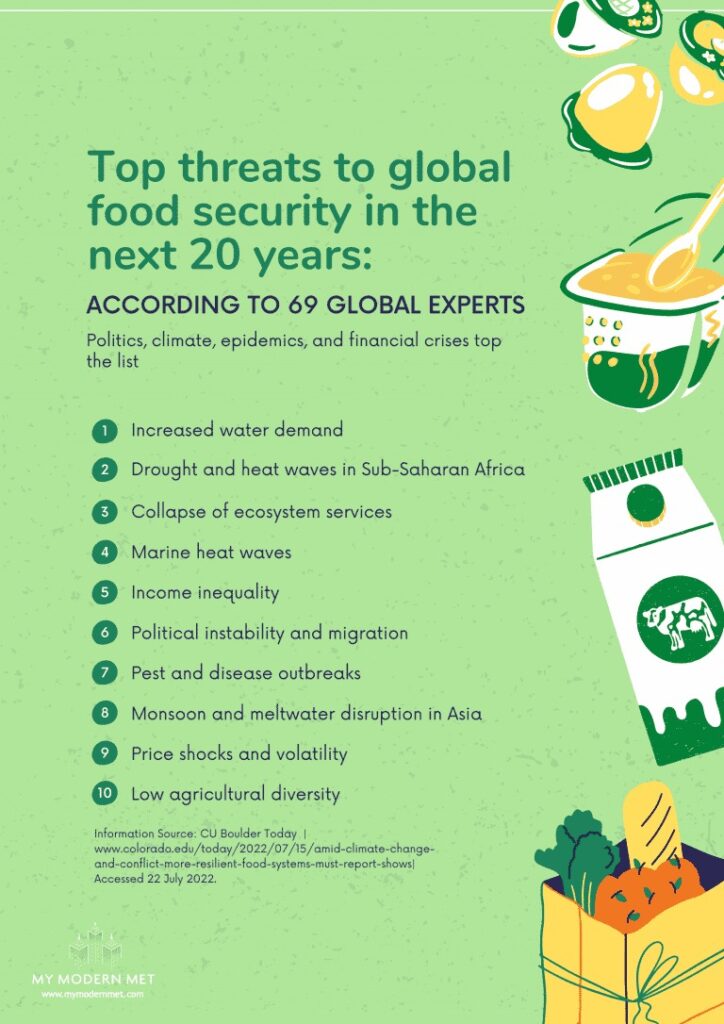
We are all aware of the global climate crisis. And if you weren’t already convinced, this summer’s heat waves in the United States and Europe might be enough to change your mind. These heat waves, which are sadly becoming all too frequent and can cause fire, drought, and serious health problems. Humans must start building infrastructure quickly to accommodate this new climate, or we could be in serious trouble. Our biggest threat over the next 20 years will come from the increased demand for water, which affects our food systems as well.
69 food security experts from all over the world were surveyed by a team led by the University of Colorado Boulder for a study that was later published in One Earth. The results are interesting. Everyone was asked to rank their top food security concerns for the ensuing two decades. While political conflicts, income inequality, and migration are also listed as threats to be aware of, climate change and the environmental challenges it brings to bear top the list.
It is not a coincidence that regions with intense political conflict are where more than half of the world’s population lives in food insecurity. One of the top five threats to the stability of the food supply over the next 20 years will be the displacement brought on by these conflicts, such as what we’re seeing now in Ukraine.
Zia Mehrabi, the study’s lead author and an assistant professor of environmental studies at the Mortenson Center for Global Engineering, claims that the issue of food security is not one of production but rather of distribution, access, and poverty, which is made worse by armed conflict. Conflict limits people’s capacity to adapt in addition to making them more vulnerable.

The study wants researchers and decision-makers from various fields to collaborate on practical solutions rather than specializing in their respective fields. Instead of trying to solve discrete issues here and there, Mehrabi said, “We strongly support the idea of building more resilient food systems in general.” “Resilient systems will be able to deal with all types of shocks, regardless of whether they are caused by a climate, environmental, or political shock to the system.”
Global food security is currently in peril as a result of severe droughts, extreme heat, COVID-19’s economic effects, problems with the supply chain, and the conflict in Ukraine. Work to end hunger, food insecurity, and malnutrition is more crucial than ever as food prices rise.
The study also actively seeks solutions by asking the experts what areas they believe require more focus in order to enact change. Diversifying the food supply was a top priority for many experts. For instance, the current conflict would have been less problematic if Ukraine wasn’t so crucial to the world’s supply of wheat. In order to achieve this, the study urges decision-makers and researchers to think about ways that nations could diversify their food production.
As what is currently available is not actually validated with real-life data, the study also calls for updated maps and data to better predict the types of problems that the world is currently facing.
“Conflict and the climate are getting worse in our world right now, as we can see. According to experts and trends, this situation will only get worse in the future, said Mehrabi. How will we create and run food systems that can withstand all kinds of shocks and extreme events? We must begin formulating plans for creating systems that can adjust to all of them.
These are the top 10 risks to world food security, according to experts.

h/t: [CU Boulder Today]

Leave a Reply